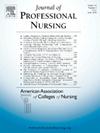Exploring the impact on faculty of the American Association of Colleges of Nursing's The Essentials: Core Competencies for Professional Nursing Education
IF 2.9
3区 医学
Q1 NURSING
引用次数: 0
Abstract
Background
Current nursing instructional methods inadequately prepare students for complex healthcare settings, exacerbating challenges in new graduate competency and transition to practice. The introduction of standardized competencies marks a substantial shift in nursing education, posing a considerable challenge for faculty implementing these changes.
Purpose
This study examined the experiences of faculty implementing a competency-based education program utilizing The Essentials: Core Competencies for Professional Nursing Education (2021) in undergraduate Bachelor of Science in Nursing (BSN) education programs.
Methods
A qualitative research design using phenomenology was chosen to explore the experiences of eight faculty and gain insight into perceived challenges experienced during the implementation of The Essentials recommendations through semi-structured interviews. Data was analyzed using a manual content analysis with a constant comparative technique.
Results
The data analysis revealed three primary themes focused on the faculty's initial uncertainty, the challenges associated with change processes and faculty engagement, and the strategies employed to develop and implement a competency-based program.
Conclusion
The findings provide insight into the faculty experience during The Essentials implementation, proposing strategies for curriculum alignment and overcoming resistance to change. Faculty continue to seek validation for their work while also facing the challenge of balancing implementation demands and broader institutional responsibilities. Continued discussions on faculty role development and resource identification are essential for future competency-based education program advancements.
探讨美国护理学院协会的《要点:专业护理教育的核心能力》对教师的影响
当前的护理教学方法不能充分为学生准备复杂的医疗环境,加剧了新毕业生能力和过渡到实践的挑战。标准化能力的引入标志着护理教育的重大转变,对教师实施这些变化提出了相当大的挑战。目的:本研究考察了在本科护理学学士(BSN)教育项目中,教师利用《要点:专业护理教育核心能力》(2021)实施能力为基础的教育计划的经验。方法采用现象学的定性研究设计,通过半结构化访谈,探索八名教师的经验,并深入了解在实施《要点》建议过程中遇到的感知挑战。数据分析使用手动内容分析与恒定比较技术。结果数据分析揭示了三个主要主题:教师最初的不确定性,与变革过程和教师参与相关的挑战,以及开发和实施基于能力的项目所采用的策略。结论:研究结果提供了教师在实施the Essentials期间的经验,提出了课程调整和克服变革阻力的策略。教师们在继续为他们的工作寻求认可的同时,也面临着平衡实施需求和更广泛的机构责任的挑战。对教师角色发展和资源识别的持续讨论对于未来基于能力的教育项目的发展至关重要。
本文章由计算机程序翻译,如有差异,请以英文原文为准。
求助全文
约1分钟内获得全文
求助全文
来源期刊
CiteScore
4.80
自引率
8.00%
发文量
153
审稿时长
52 days
期刊介绍:
The Journal will accept articles that focus on baccalaureate and higher degree nursing education, educational research, policy related to education, and education and practice partnerships. Reports of original work, research, reviews, insightful descriptions, and policy papers focusing on baccalaureate and graduate nursing education will be published.

 求助内容:
求助内容: 应助结果提醒方式:
应助结果提醒方式:


